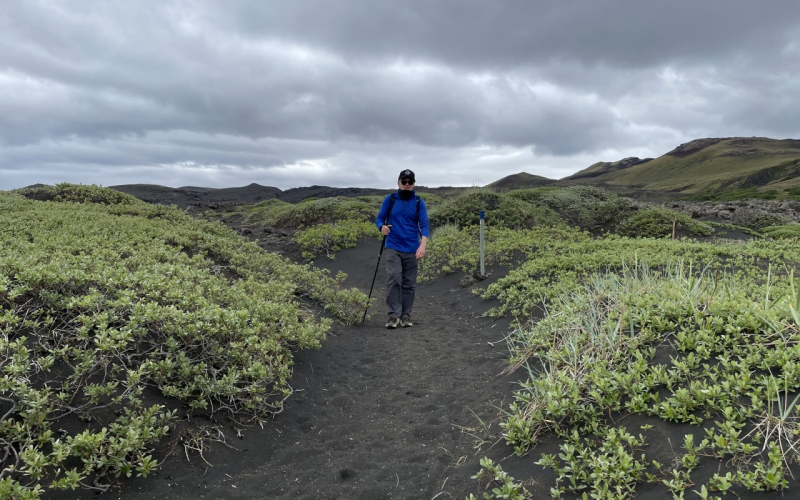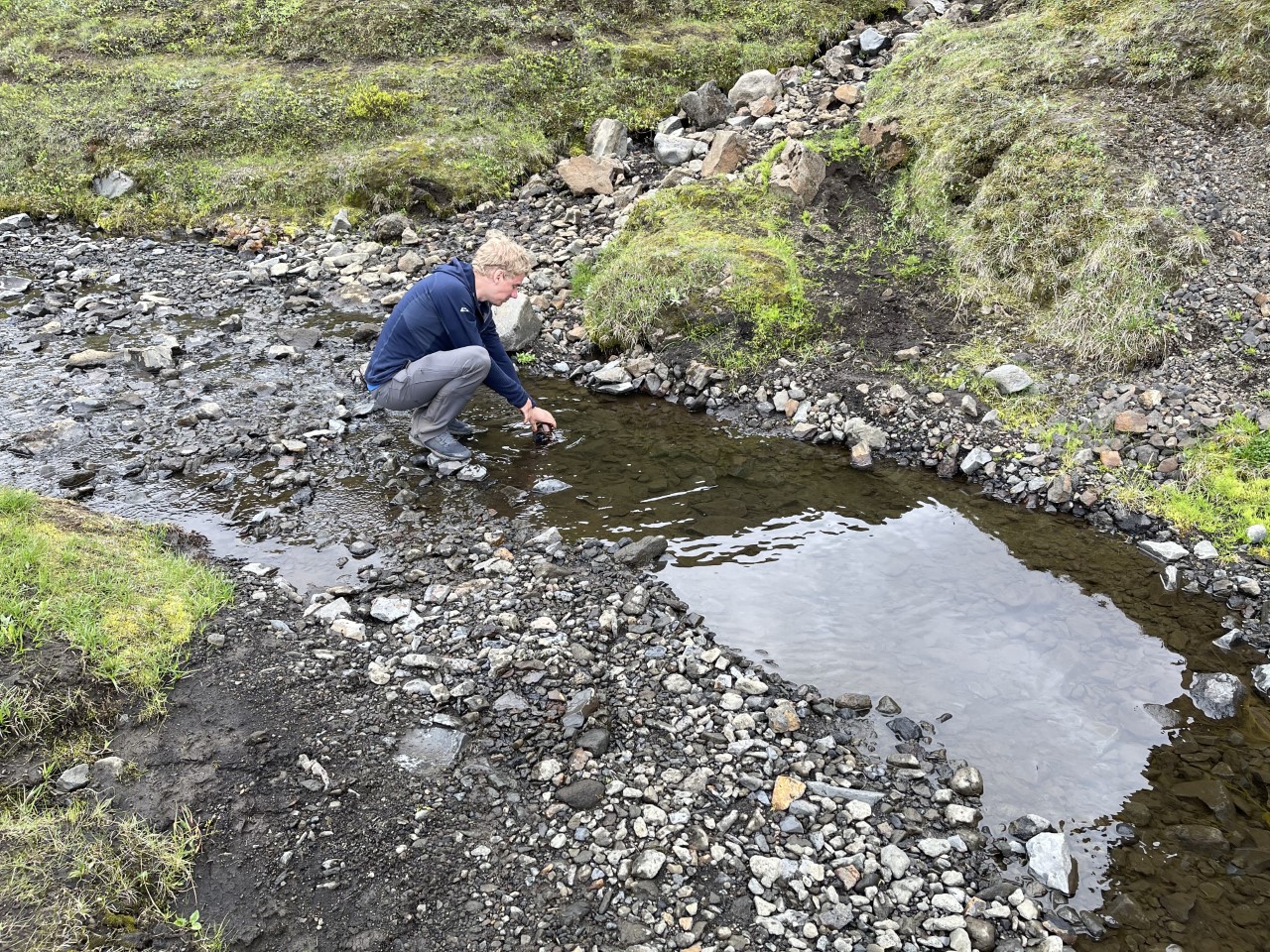
Known as the best hike in Iceland, and one of National Geographic’s “Top 20 Dream Trails”, this trek stretches from the geothermal valley of Landmannalaugar and the southern highlands, south to the Thorsmork valley at the foot of the world famous Eyjafjallajokull volcano. The trail crosses many spectacles including the third largest geothermal zone in the world, through yellow rhyolite mountains, over black deserts, past great canyons, and finally into the verdurous valley of Thorsmork. It is no coincidence that the Laugavegur hike attracts travelers from all over the world in addition to being a great favorite amongst locals.
- Distance – 32.4 miles
- Elevation – 5,583 ft.
My interest in the Laugavegur trail was peaked via a request by one of our favorite intrepid clients, the McGaan Family, who requested the 32-mile hike based on a 3 night/4 day schedule back in 2017. Although Andy and his teenage kids at the time thought the trek to be rigorous, they all agreed it was a rewarding accomplishment and a shared family experience that has become a lifelong family memory!
Though several of our clients expressed interest in the Laugavegur Trek, they wished a more abbreviated version in order to integrate within the “Golden Circle” (Skalakot Lodge), an active private tour and 3-4 night stay up north (Troll Peninsula) at the extraordinary luxury Deplar Farm adventure lodge. Accordingly, I decided to embark on a 2 night/3 day scouting trek of the Laugavegur trail while completing the entire 32-mile hike one day sooner than recommended.
The wilderness of Iceland remains largely intact and undisturbed, resulting in a trek where the beauty of nature takes precedence over manmade structures and features. To continue to preserve this truly alluring place, we encourage you to mind your environmental impact, taking nothing from the environment but photos, memories, and leaving nothing but your footprints.
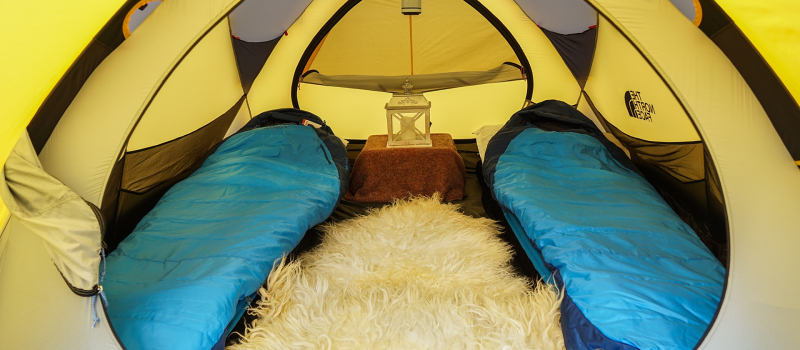
Private Guide/High-Touch Camping
Though the 32-mile trek can be quite strenuous and difficult throughout the many steep climbs and descents, having an experienced private guide and camping support team makes for a much more comfortable and safer experience(!). Our engaging guide, Bjartur, along with the transport/camping support team (cook and driver) prepared my nice tent (sleeping bag with mattress!) each night, along with evening cooked meals, breakfast, and a to-go lunch packet. The food was outstanding, including lamb stew, ocean catfish, and cod. Our fun, engaging talks with the friendly crew was a high point each day, so many interesting stories and no shortage of laughter!
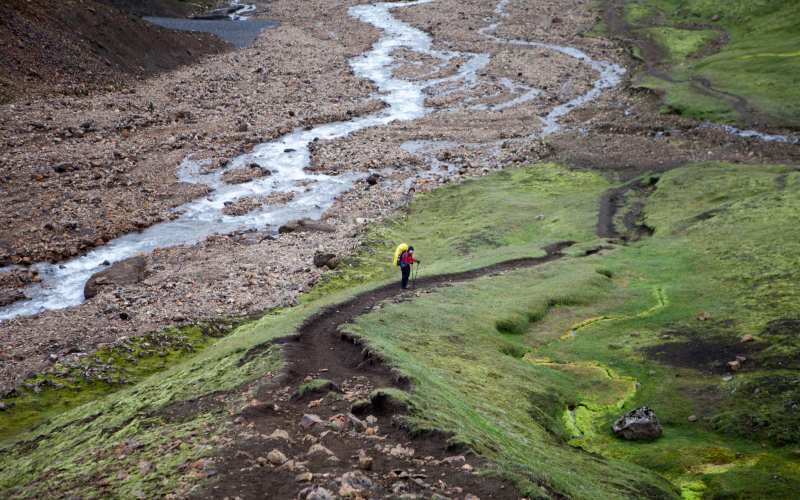
Hiking Poles (a big help!)
Luckily my guide, Bjartur, brought an extra hiking pole along on our trek which proved to be nice support for the various steep climbs and stream crossings. I felt the relatively small (icy!) rivers/streams Bjatur and I were crossing were perhaps the most painful part of the three day trek. The streams’ strong currents coupled with bare feet on the sharp rocks was a real challenge, with the hiking pole being a critical appendage to maintain my balance. My oversight in prepping for the trip was not acquiring beach/river shoes (neoprene) for the river crossings. For sure next time!
Hiking Shoes + Crossing Streams
Based on the frigid water conditions, we suggest hiking boots that run up to your ankles as I spent a whole day hiking in at least one foot of snow. In contrast, just two days prior there was no snow in this section of the trek. Good gripping and flexible soles are all one needs and rugged exterior material. Again, favor anything lightweight! The trail crosses several streams and rivers, but only two have bridges. The currents vary in intensity. Most are fairly shallow. Weather conditions can lead to more powerful and deeper currents. There is no avoiding the water temperature as the glacier run-off is astonishingly cold. Though your feet may feel hypothermic, that makes warming up on the opposite bank all the more invigorating! It is also a good idea to bring along a small towel to dry your feet after crossing (it helps your feet warm up as well!).
Backpack
Because I was “glamping” and not carrying tents, sleeping bags, and food, I needed only light packs with space sufficient for layers, gloves, chapstick (bring chapstick!), sunglasses, a water bottle, and a camera. I carried a book and an iPad to read at night. Make sure it’s a hiker’s, not a student’s backpack. Hiker packs have straps that clip at the waist and chest to keep the pack firmly in place. It makes walking and climbing easier and frees up hands and arms.
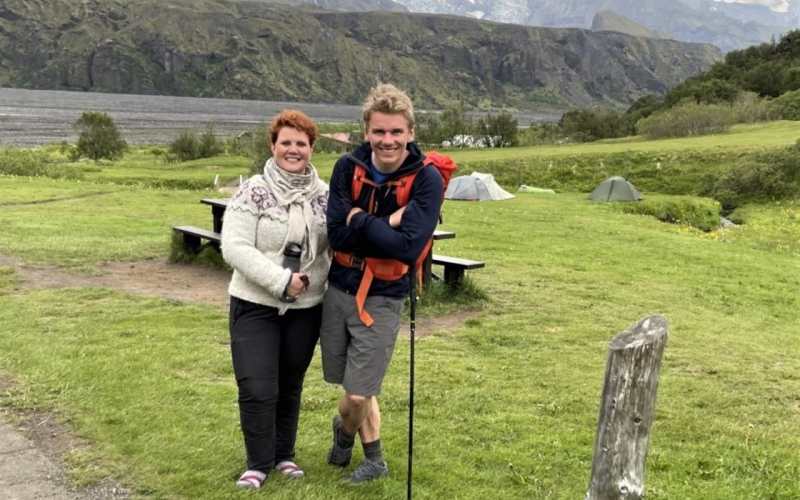
Toiletries
There are bathrooms and showers available at the overnight camping locations. However, let’s just say they are not AMAN-esque. You must remember that you are in the wilderness and the facilities available are spartan-basic with each provided token granting you a quick 5-minute shower allowance. What to bring? Shower shoes! Stream-crossing water shoes can serve double duty. The less one carries the better. Small-sized toothbrush and paste, a comb, deodorant. Skip everything else (floss, razors, shaving cream, Q-tips, creams, etc.).
Rain
I got lucky and had no rain, but it can and does rain. Bring a very lightweight rain shell. I bought a durable one at REI that was paper-thin, barely weighed an ounce. Try it on in the store over a parka to get the correct size. Be sure it has a hood and, like everything else, that it wears a bit loosely. One could add a pair of waterproof rain pants, but I was ready to walk in my fast-drying, synthetic hiking pants if it rained and was glad not to have the added weight. Other concessions to the possibility of rain is to bring extra socks to allow for clean, dry ones each day, even to change at midday if one would like.
